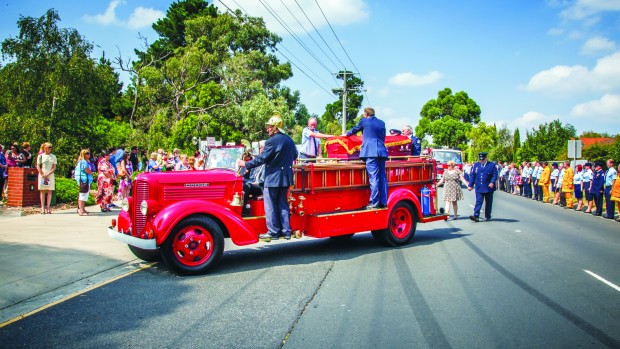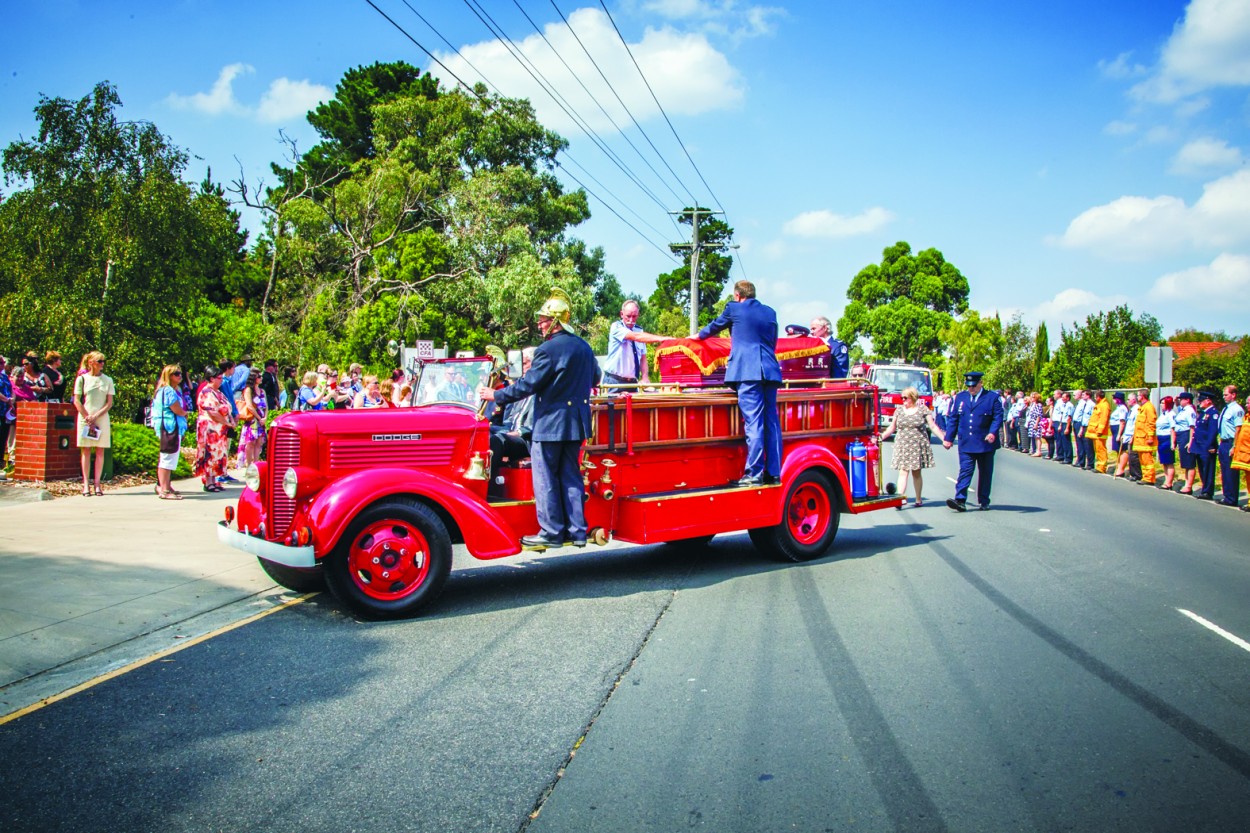
THE man who blew the whistle on the CFA’s Fiskville training centre scandal was sent off with full honours last month at a private funeral service at St Jude’s Church in Langwarrin and a memorial service at Langwarrin fire station.
Brian Potter, 70, was the CFA’s chief between 1985 and his retirement in late 1991.
He spoke out for fair treatment of firefighters suffering from cancers related to their work, especially those who had died young after being exposed to cancer-causing chemicals at Fiskville in the 1970s and 1980s.
Dozens of cancer cases were linked to the use of chemicals at the centre, and the CFA was criticised for being too slow to react to concerns.
Mr Potter had a rare auto-immune disease and suffered from a series of cancers over about 20 years after working at Fiskville, north of Melbourne.
In 2011 he revealed firefighters were exposed to contaminated water and chemicals that had been burnt and buried at the facility, prompting the Premier, Ted Baillieu, to set up an inquiry.
After its recommendations were handed down in June 2012, the CFA altered its work practices.
Mr Potter lobbied for changes to laws to give greater access to workers’ compensation for firefighters with cancer.
The changes have not yet been supported by the Victorian government but have been passed in South Australia, Tasmania and Western Australia.
In 2012, Mr Potter was told by the CFA’s insurer that his cancers were not related to exposure to chemicals during his 33 years with the authority. He was denied compensation after earlier being told by the CFA and state government that CFA fireys would be looked after.
Mr Potter joined Upper Ferntree Gully CFA as a volunteer in 1958 and became a staff member in 1964.
He was involved with major fires in Gippsland in 1965, where he and his crew were burnt when they became trapped between two fire fronts.
He was chief of several CFA regions during his career, and was appointed boss of training at Fiskville in 1978 and the CFA’s deputy chief officer in 1980, responsible for training, communications, fire safety, research and development, and the design and introduction of new equipment.
In 1981 he was awarded the Queen’s Fire Service Medal for distinguished service.
After Ash Wednesday in 1983, the CFA sent Mr Potter to the United States, Austria and England to investigate improved command and control methods, training, communications, and trends in firefighting vehicles and equipment.
Appointed chief officer in 1985, he successfully lobbied the state government for money to buy hundreds of large pumpers and tankers as well as build new fire stations.
Mr Potter introduced the concept of a single, national command and control system for fighting fires in Australia, based on what he had seen in the US.
After leaving the CFA in 1991, he worked as a consultant for fire authorities and forestry services around Australia.
He also served on the Metropolitan Ambulance Service committee 1997 to 2001.
Following serious illness and a stroke in 1997, he scaled back his work but undertook a range of short-term consultancies to the CFA following major fires in 2006-07 and Black Saturday in 2009.
CFA chief officer Euan Ferguson said Mr Potter had left a lasting legacy to Victoria and wider with achievements such as “overseeing the largest truck building program in CFA history after the 1983 bushfires, providing expert advice to Spanish fire authorities on the use of aircraft on bushfires, and overseeing the issue of a firefighting appliance to every fire brigade in the state, the first time this had ever occurred”.
“Brian remained involved in CFA as a member of Langwarrin fire brigade, and was recently awarded the National Medal, his 55-year service award, and life membership of CFA,” he said.
A guard of honour flanked Centre Rd in Langwarrin when Mr Potter’s coffin was carried on an old Dodge fire truck between St Jude’s and the fire station. The procession was headed by members of the CFA Motorcycle Club and the Fireman’s Prayer was read at the fire station.
Emergency Services Commissioner Craig Lapsley was in the guard of honour.
Mr Potter is survived by his wife Diane, four children and 10 grandchildren.

